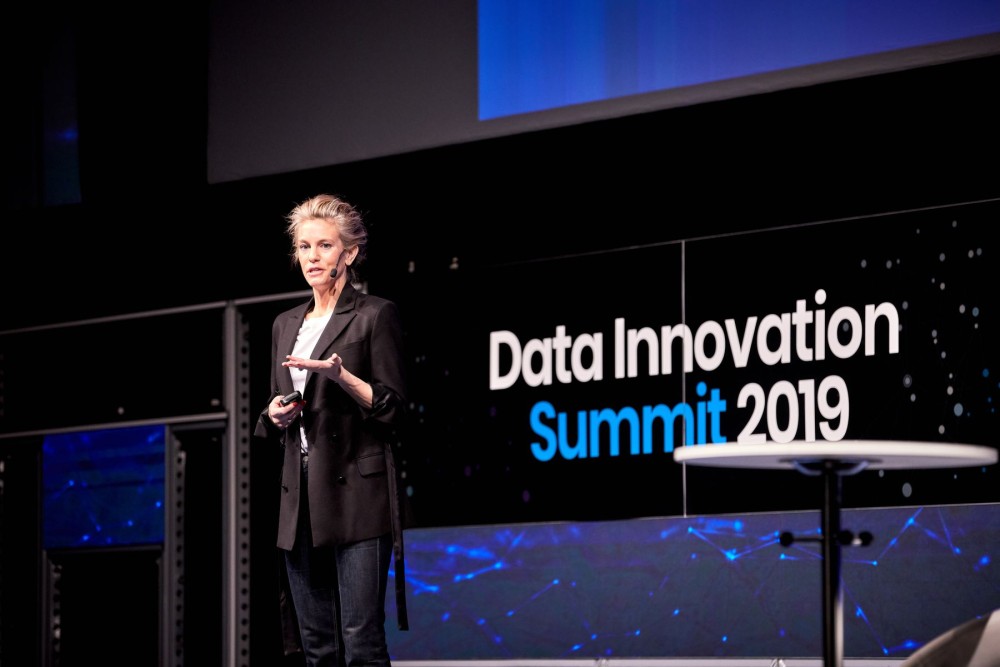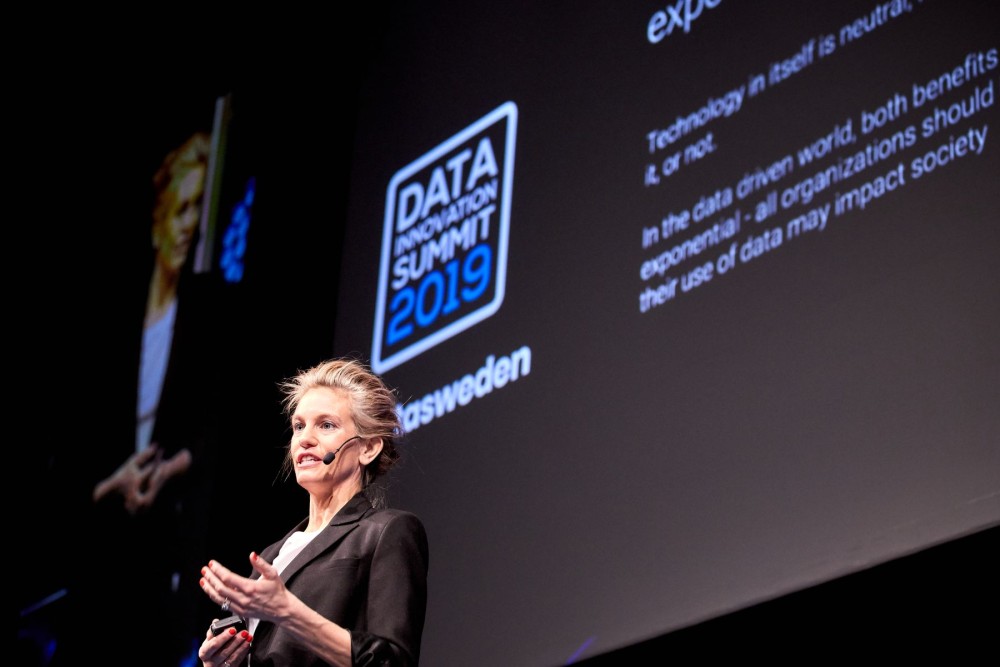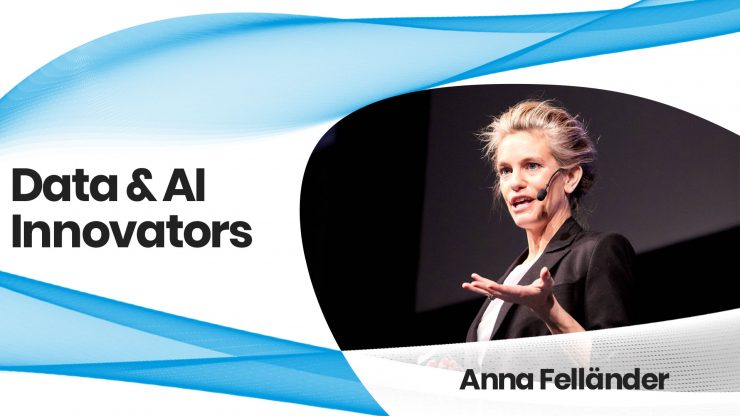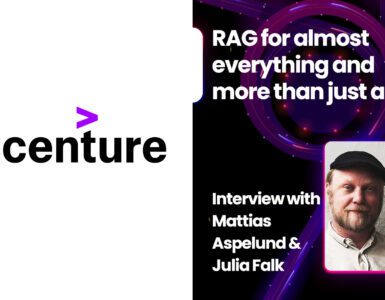Data Innovation Summit turns five next March. Along the way, we have had fantastic speakers unselfishly sharing their knowledge on stage with their peers. Without them, this journey would be impossible.
This interview is part of an interview series dedicated to humanising Data and AI innovation and celebrating speakers who have presented at the Data Innovation Summit. The emphasis lies on the Data/AI people/practitioners, their professional journey and their stories.
The gains from AI for organisations and societies hold enormous potential. However, navigating in the AI world should be done through the sustainability prism bearing in mind the ethical and societal implications.
Anna Felländer was a speaker at the Data Innovation Summit 2019 where she delivered a presentation on AI sustainability, its importance and how to achieve it. Today we revisited the topic of AI sustainability in this interview along with challenges and predictions about AI.


Hyperight: Hi Anna, we are glad to have you with us today and have the chance to catch up. You were a speaker at Data Innovation Summit 2019. To refresh our memories and introduce yourself to our readers, please tell us a bit about yourself and the company you are coming from.
Anna Felländer: Hi! I’m the co-founder of the AI Sustainability Center, where I lead the centre and manages overall operations and relations together with Elaine Weidman Grunewald. I’ve been the Chief Economist and Digital Economist at Swedbank and have been working with the Swedish Government for almost ten years in various expert roles and departments. I’ve held positions in academia, government, the digital start-up scene, and large organizations focusing on Artificial Intelligence & Ethics.
The AI Sustainability Center was established in 2018 to create a world-leading multidisciplinary hub to address the scaling of AI in broader ethical and societal contexts. Our partners are united around a common belief that it is better to navigate together than alone. The goal is to be leaders in setting frameworks that put humanity at the core. We offer a methodology and framework for purpose-driven technology.
Hyperight: At Data Innovation Summit 2019, you presented on the topic of AI sustainability. Could you please explain more about what it means and how it concerns organisations?
Anna Felländer: AI Sustainability means identifying, measuring and governing ethical and societal implications of AI and data-driven technology. The AI Sustainability Center is a collaborative, research-focused environment for applying Al sustainability strategies and frameworks. The centre intends to focus on mitigating risks as well as facilitating the realization of the vast gains to organizations, society and individuals by acting proactively.
Technology in itself is neutral, it all depends on how you use it. In the data-driven world, both benefits and risks are exponential – all organizations should be thinking about how their use of data may impact society.


Hyperight: Next year we are celebrating our 5th anniversary. A lot has changed with data and AI during these 5 years. From your point of view, where do we see the biggest changes and advancements we have had?
Anna Felländer: Artificial Intelligence is nothing new, but we’re in the phase where mature technologies cross-fertilise:
– We can store and process data cheaper with greater capacity and we have more data (from IoT sensors, voice and face recognition applications) which is making the technology explode at this moment. The values for society, individuals and organisations are indisputable, but there is not sufficient knowledge on how it is scaling in an ethical and societal context.
Hyperight: According to Gartner, the AI applications in deployment was less in 2019 compared to 2018. What are some of the challenges with AI adoption? And what would be the solution for tackling them?
Anna Felländer: So the technology is galloping but the profits can be seductive and lead to pitfalls such as discrimination and privacy intrusion if it is not implemented in a sustainable away (including the legal, technical and societal perspective). AI is different because it is self-scaling and self-learning, and there are low transparency and lack of explainability models – so we need another approach to assess the risks and since the regulatory framework post-GDPR is lagging – organisations stay accountable.
The AI Sustainability Center offers a practical framework to scan and assess for unintended pitfalls such as bias and misuse. We help organisations navigate to avoid costly consequences such as discrimination and privacy intrusion. We believe a new and just approach to AI is possible, that considers both positive and negative impacts on people and society on the same level as commercial benefits or other efficiency gains.


Technology in itself is neutral, it all depends on how you use it. In the data-driven world, both benefits and risks are exponential – all organizations should be thinking about how their use of data may impact society.
Hyperight: Looking ahead at the decade to come, what are your future outlooks for AI and AI sustainability for 2030?
Anna Felländer: Society is increasingly concerned about AI, and ensuring that it is used for the best of humanity.
Today’s business models consolidate profits in the hands of a few, at the price of the integrity of many. Seductive profits are derived from AI solutions that drive revenues and cost efficiencies. Yet, the negative externalities are not accounted for in the business.
Several organizations are designing “principles” on responsible/ethical AI, or are looking at “AI for social good;”
It’s time to change the business model. And my belief is that trust is gained through transparency, explainability, accountability in your data-driven solutions and AI applications.
















Add comment